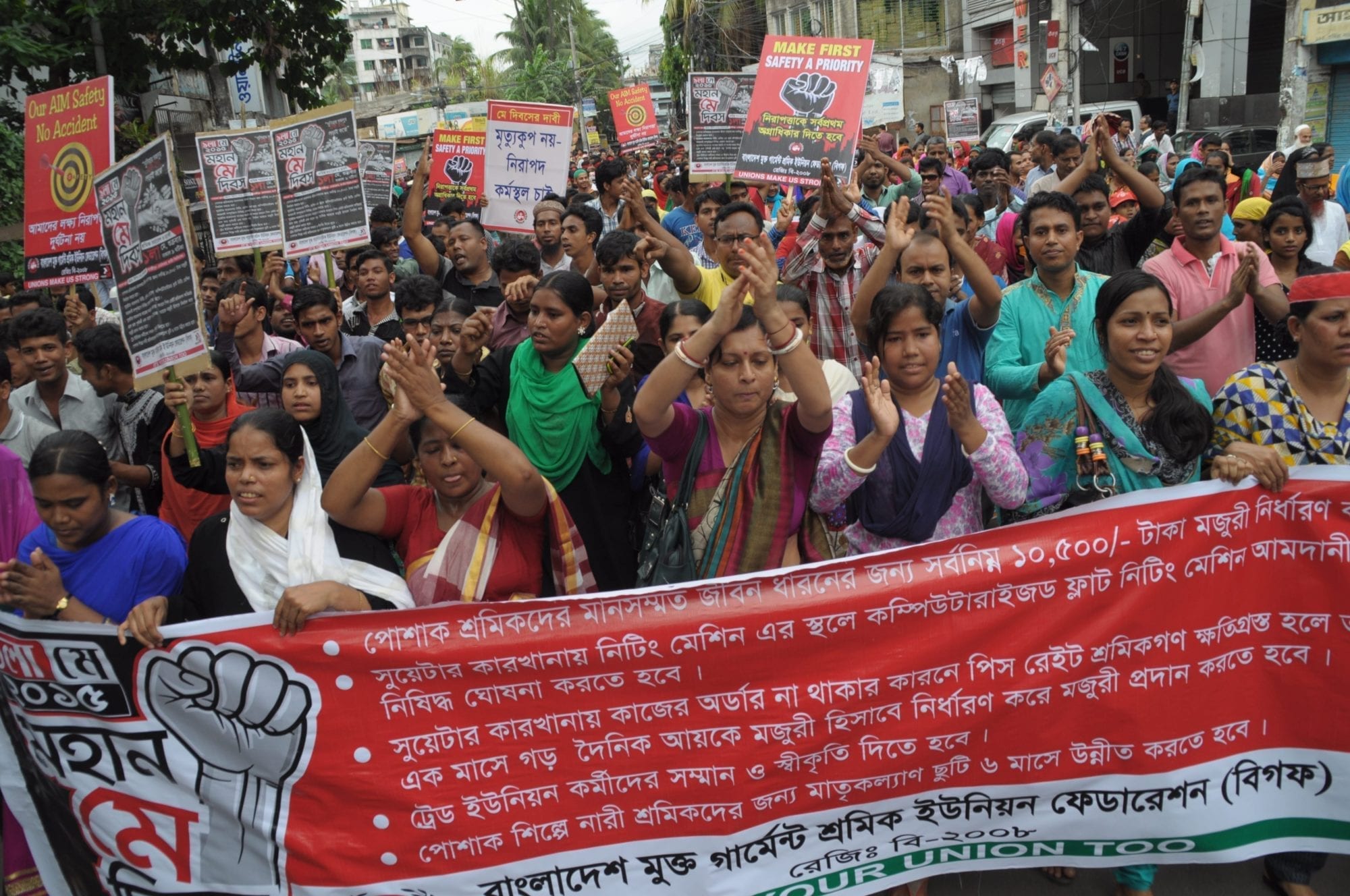The Solidarity Center warns that the broad crackdown on garment workers, union leaders and worker rights activists in Bangladesh marks a troubling escalation of efforts to silence garment workers and criminalize their fundamental rights to organize, speak to power and improve their lives and livelihoods.
In a new briefing document, the Solidarity Center outlines the intimidation, arrests and firings that followed a garment worker walk-out in December. It calls on the Bangladesh government and the Bangladesh Garment Manufacturers and Exporters Association to stop the intimidation campaign; respect workers’ legal right to unionize and bargain with employers; negotiate with unions that represent workers’ interests; and raise the garment-sector minimum wage.
Since 2012, the Solidarity Center has recorded hundreds of cases of unfair labor practices, including physical attacks on union leaders, organizers and pro-union workers (and/or their families); kidnappings; threats of death and/or rape; false criminal charges; mass termination; stolen personal property; coercion; harassment; forced signing of “white papers,” that effectively increase production targets; and withholding of access to factory facilities and property (e.g., toilet, elevator).
In 2013, Bangladesh raised the minimum wage for garment workers to $68 a month, the lowest among garment workers in the region. For example, in China it is $265/month; Indonesia, $220; Vietnam, $131; India, $128; and Cambodia, $100. Bangladesh’s capital, Dhaka, is the 71st costliest city in the world, in line with Montreal, Canada.
The Bangladesh garment sector produces clothing for export, primarily to the United States and Europe. It employs nearly 5 million workers, the majority of them women.
You can defend Bangladesh garment organizers and worker-activists as they help workers who toil in unsafe factories for unfair—or unpaid—wages and who, without a union, cannot exercise their rights.

